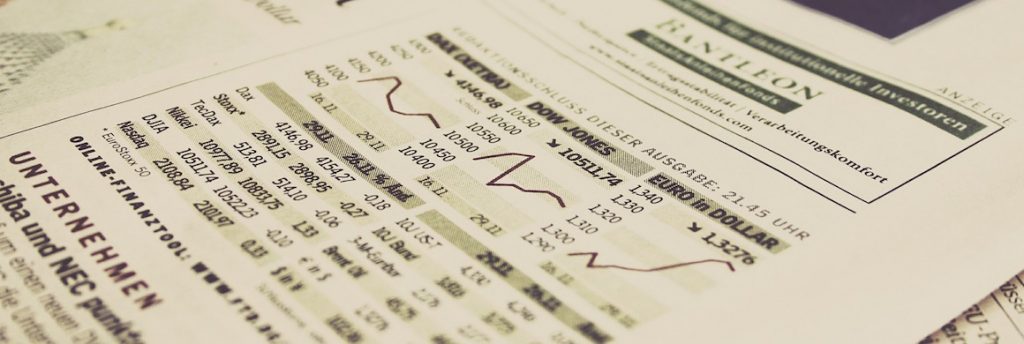For the 14th consecutive year, the University of Toronto’s Rotman School of Management will host one of the world’s top student trading competitions. The Rotman International Trading Competition (RITC) is an annual event that draws students and faculty from 52 universities worldwide—countries represented include China, Iceland, India and South Africa—for a three-day simulated market challenge.
About The Rotman International Trading Competition
This year, RITC will take place Feb. 23–25 in the Rotman School’s BMO Financial Group Finance Research and Trading Lab. The Lab is home to the Rotman Interactive Trader, which links to real-time data feeds and allows users to purchase and sell stocks, options, futures and fixed income investments from North American markets. During the competition, teams will participate in a variety of events including electronic and outcry trading cases, seminars with industry practitioners and social events with fellow competitors.
“Our competition is not online: participants meet and participate in a variety of activities and settings—competitive and social,” explained Professor Tom McCurdy, Founder and Academic Director of the BMO Financial Group Finance Research & Trading Lab and Bonham Chair in International Finance. “We provide access to our simulation cases weeks prior to the event so that participants can practice acquiring the necessary skills for making good decisions when participating in the wide range of challenges they will face during the competition.”
Students participating in the competition are some of the best and brightest at each university. According to Professor McCurdy, teams are chosen through their performance in other competitions or coursework, “so that when they arrive at RITC, they represent some of the best-prepared and motivated students from around the world.”
But what really makes the students stand out is their willingness to invest time and financial resources necessary for the competition and travel to Toronto. Professor McCurdy firmly believes the benefits far outweigh any costs: “The opportunity to meet and network face-to-face with participants who have similar interests but come from many different countries and cultures is a very rewarding experience—not just during the event but for many years after due to the contacts they maintain with RITC alumni throughout their careers,” he said. “For example, one of our recent RITC participants reported that when he went for a job interview, the interviewer was also a former RITC participant, an experience that opened doors.”
RITC organizers aim to innovate and incorporate new developments in the trading competition each year, creating a diverse range of cases for participants. That said, Professor McCurdy reported that he most looks forward to the competition’s global representation: “Meeting competitors from universities competing for the first time e.g. University of Iceland; and welcoming back competing schools from around the world, including Australia, HK, China, Korea, India, South Africa, Europe, USA and Canada.”
Meet the University of Toronto’s Team
“This year’s University of Toronto team has six students from four different U of T programs (Master of Financial Risk Management, Master of Financial Economics, Computer Science and the Bachelor of Business Administration at the University of Toronto Scarborough),” explained McCurdy. “In previous years, students from our Master of Finance, MBA, MMF, Rotman Commerce and the University of Toronto Mississauga Management programs have also participated.”
About the BMO Financial Group Finance Research and Trading Lab
The Trading Lab is designed to promote experiential learning in the area of financial markets and data. “Students from all of our degree programs use the Lab to access real-time news and resources (data about companies, financial securities, markets, etc.) for their course assignments and for self-initiated learning-by-doing using our suite of ‘Quick Start Guides’ for our Lab resources,” explained McCurdy. “They have the opportunity to experience and learn how to use many of the resources and tools that they will use later on the job.”
There are four main interest areas for the Lab:
- RIT: The Rotman Interactive Trader (RIT), which is the “world’s most widely used market simulator.”
- RPM: The Rotman Portfolio Manager, which offers real-time portfolio tracking with portfolio and performance analytics.
- RITC: The Rotman International Trading Competition, sponsored by BP. Other sponsors include Flow Traders, MathWorks, and S&P Global Market Intelligence.
- Finance Lab: The Finance Lab is a state-of-the-art facility that focuses on the integration of theory and research with practice.
“Further, our Lab has evolved from being a portal for real-time information to being a dynamic learning center,” McCurdy said. “For example, many of our courses also use our Lab cases to practice applying ideas discussed in class and to derive optimal decision strategies that take explicit account of uncertainty. In addition, our Lab provides many opportunities for extra-curricular activities such as investment clubs, trading competitions, case competitions, etc.”
